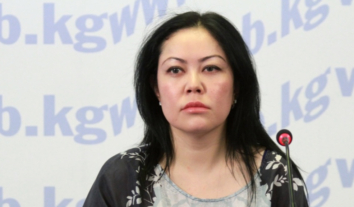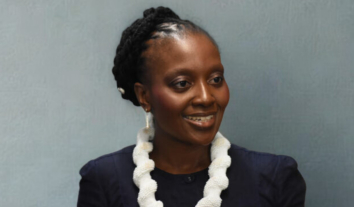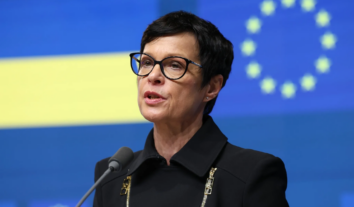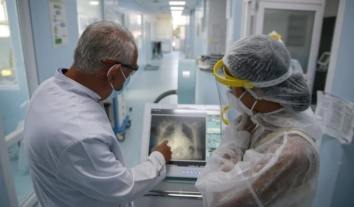Do YOU See Discrimination? It Sees You
Normal
0
false
false
false
RU
X-NONE
X-NONE
/* Style Definitions */
table.MsoNormalTable
{mso-style-name:”Обычная таблица”;
mso-tstyle-rowband-size:0;
mso-tstyle-colband-size:0;
mso-style-noshow:yes;
mso-style-priority:99;
mso-style-qformat:yes;
mso-style-parent:””;
mso-padding-alt:0cm 5.4pt 0cm 5.4pt;
mso-para-margin-top:0cm;
mso-para-margin-right:0cm;
mso-para-margin-bottom:10.0pt;
mso-para-margin-left:0cm;
line-height:115%;
mso-pagination:widow-orphan;
font-size:11.0pt;
font-family:”Calibri”,”sans-serif”;
mso-ascii-font-family:Calibri;
mso-ascii-theme-font:minor-latin;
mso-fareast-font-family:”Times New Roman”;
mso-fareast-theme-font:minor-fareast;
mso-hansi-font-family:Calibri;
mso-hansi-theme-font:minor-latin;}
A presentation of the educational campaign “Discrimination limits. Counteract!” took place on March 24th during the XII International Documentary Film Festival Docudays UA.
Discrimination exists. You may simply not see it. It is like a virus. However, both viruses and discrimination can be stopped. The most important part of this struggle is to recognize discriminatory attitudes and stop them before they spread. According to the encyclopedia, discrimination (from Latin “discrimination”- “distinction”) is any distinction, exclusion, restriction or preference which denies or reduces the equal enjoyment of rights.
In Ukraine, discrimination is forbidden. This is stated in a number of laws, most importantly in the Constitution and the law “On Principles of Prevention and Combating Discrimination in Ukraine.”
However, according to the Democratic Initiatives Foundation, 75% of Ukrainians believe that there is no equality before the law in the country and only 10% hold the opposite view.
In order not to breed lengthy discussions on whether there is discrimination in Ukraine or not, the organizers of the campaign “Discrimination limits. Counteract!” offered participants a small social game. Oleksandr Voitenko, host and Coordinator of the All-Ukrainian Educational Program “Understanding Human Rights,” gave volunteers different social roles. There were a person with disability, a mother of many children, a Roma, a lesbian, a Syrian refugee, an IDP from the ATO and others.
The tasks were simple: receiving service in public agencies, getting a loan, arranging for a child to enroll in kindergarten or a private school, getting a job themselves, relaxing in a good restaurant, and booking a hotel room. Not very unusual activities.
However, most of the participants were faced with the fact that they were refused, and often groundlessly.
When discussing the “results” of the game, it turned out that stereotypical prejudices affected the responses of those playing representatives of banks, government agencies, or educational institutions. For example, there was the idea that a teacher who is wheelchair-bound is unable to hold the attention of the class and will not cope with the work. There was also the prejudice that a Roma girl is dirty and unable to pay for services. Also noticed was the idea that a lesbian couple is incapable of raising a child. For a young black 18 year old, there simply was not any work left.
An important note: those volunteers who played the roles of a banker, private school dean, or a restaurant director were not instructed to discriminate. They were merely asked to act in a way that their “heroes” would.
Another interesting observation was that the participants who were active and persistent, no matter how vulnerable a group they represented, were able to defend their rights to education, work, or leisure.
The organizers of the “Discrimination limits. Counteract!” campaign note that this is just a game, but it clearly reflects the stereotypical perceptions of different social groups that exist in our society. Their deep conviction is that in order to change the situation, it is necessary to at least inform the public about the causes of discrimination and how to protect yourself if you became the subject of discrimination.
Tetiana Pechonchyk, head of the Human Rights Information Center, noted during the presentation that discrimination can occur for various reasons – because of who the person is, who a person is considered, who the person socializes with.
The list of grounds for discrimination is inexhaustible – skin color, ethnicity, sex, age, disability, place of residence, sexual orientation, religious beliefs…
How to protect yourself? Iryna Fedorovich, Co-chair of the Coalition Against Discrimination, names several ways. One, you can file a complaint with the Office of the Commissioner for Human Rights.
A more difficult way is to go to court. In order not to be alone with the problem, you can contact non-governmental organizations. There are many organizations that provide free legal aid. The Coalition Against Discrimination, for example, operates its Foundation for Strategic Affairs.
No one promises that it will be easy. However, remaining silent is not a solution. The situation can be changed only when there are those who are brave and patient and who seek to protect their rights, believes Fedorovich.
The campaign organizers did not make any conclusions. They are simply calling for recognition of discrimination in society and counteraction. How many of us can say with certainty that they have never been and never will be subjected to discrimination?














